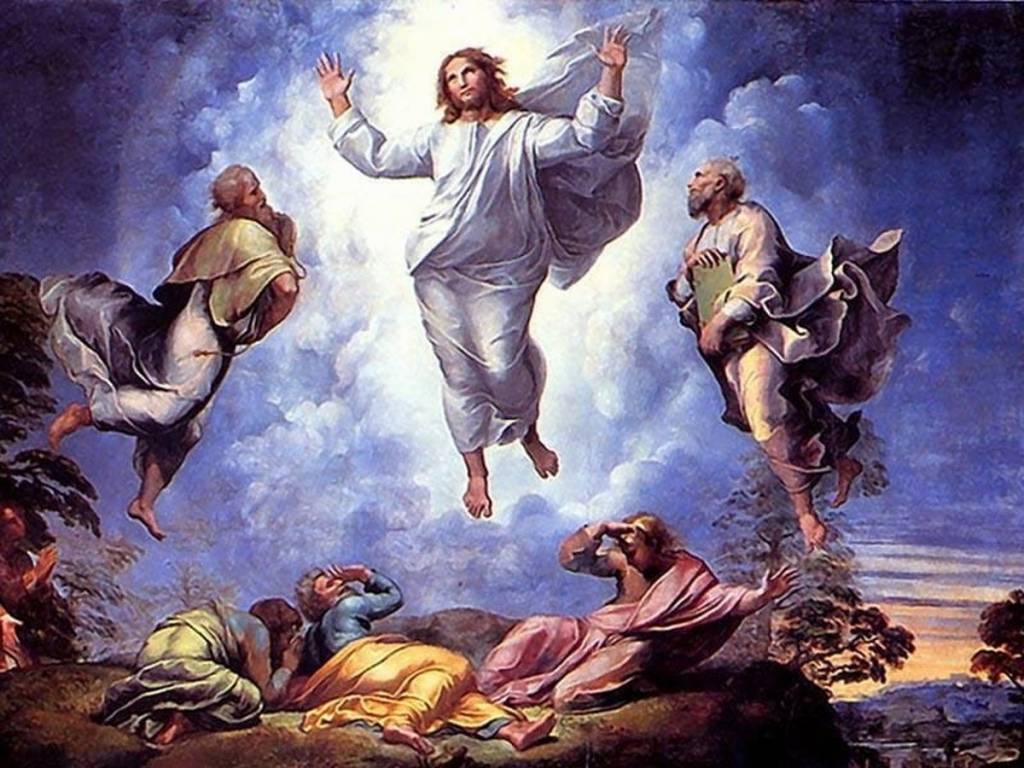Thursday, May 26, 2022
Solemnity of Ascension of the Lord
First Reading: Acts 1: 1-11
Responsorial Psalm: Psalm 47: 2-3, 6-7, 8-9 (R.6)
Second Reading: Hebrews 9: 24 – 28, 10:19-23
Gospel: Luke 24: 46-53
Today, we celebrate the solemnity of the Ascension of our Blessed Lord who spent 40 days on earth after his resurrection. He Ascends above the forces of nature, and enters into the mystery of God. This is because He is one in union with the Father.
The Gospel of Luke (24:46-53) shows us the emotion of the disciples of Jesus when he was taken up in the cloud, away from them. Instead of being perplexed and sad, they went back to Jerusalem rejoicing and praising God. This is to show us that there was no feeling of defeat but a conqueror; and He is with us in a higher and more powerful way. Therefore, we are not to feel dejected like children without a father because he made a promise and gives us a commission. The promise is the Holy Spirit who will continue to reveal Him and His works and the commission is to go into world and preach the gospel, making disciples of all nations. Thus, Ascension does not mean departure into a remote region of the cosmos which is inaccessible, rather, the continuing closeness that the disciples experience so strongly that it becomes a source of lasting joy.
In “Acts of the Apostles” (1:1-11), the question of time to restore the Davidic dynasty was addressed to Jesus. This entails that the disciples were thinking of an exclusive kingdom whereas Christ makes provision for an inclusive kingdom. The promise made to David is fulfilled in Christ who divinizes, and eternalize that kingdom as one who is from the lineage of David. That is why He gives them the commission to make disciples from all nation, not limited to a particular tribe.
In this context belongs the statement about the cloud that takes him up and withdraws him from their sight. The cloud reminds us of the hour of the Transfiguration, in which the bright cloud falls on Jesus and the disciples (cf. Mt 17:5; Mk 9:7; Lk 9:34-35); the overshadowing of the Most High on Mary (Lk 1:35); the cloud that came over the tent to signify the presence of God (Ex 40:34-35); and the cloud that led them through the desert (Ex 23:21-22). This cloud phenomena presents Jesus’ departure not as a journey to the stars but an entry into the mystery of God.
Being taken up in the cloud does not inform the idea in Psalm 110:1. No, God is God. He is above every space and does not dwell in a place like we conceive it. God stands in relation to all spaces as Lord and Creator. His presence is not spatial, but divine. “Sitting at God’s right hand” means participating in this divine dominion over space.

Since He is above every space, He is everywhere. Though He is transcendent, He is still immanent. The encounter of Paul on his way to Damascus tells us that Jesus is still with us. In Jn 14, he gives us hope that his departure is for good; to prepare a place for us, so that where he is, we also may be.
The event in Mk 6:45-52 shows us that Jesus is everywhere because after the multiplication of the loaves, He made the disciples enter the boat to cross over to the other side of the shore. He dismissed the crowd and went up to the mountain to pray. As He prayed, there was turbulence in the sea; and because he is one with the Father and sees all things, He descends, walks into the storm, enters the boat, and aids them through to their destination. Christ is everywhere and ever ready to help the pilgrim church, to aid vocations in crisis, and bring certainty to our confusions regarding truth.
In Jn 20:17, Mary Magdalene tried to cling to Jesus after she recognized Him but Jesus stopped her saying, “I have not ascended to my Father.” The understanding here is that we will touch Jesus with the Father when we ascend to heaven.
Finally, Jesus has broken many laws of nature such as the turning of water into wine at the wedding feast in Canaan, raising the dead, and His resurrection, and Ascending into heaven. Jesus broke the law of gravity propounded by Newton which says “whatever goes up must come down.” Christ went up because He is above the forces of nature. As if to say that life ends with the law of gravity, scientist came up with the law of aerodynamics. Aircrafts operate on this law. They fly in the cloud above but at some point, they decelerate back to the law of gravity. But for Christ today, He ascends above the law of gravity and aerodynamics, and never to descend back to the law of gravity.
He makes the same provision for us, that we too can ascend through the power of the Holy Spirit. With the Holy Spirit, we operate at a higher frequency, and never to drop down and in our participation in the Eucharist, we rise with Him on the last day.
Have a blessed day.

Rev. Francis Onu, MSSCC

Nice one brother! Thanks for sharing. Thanks to the Ascension, we have hope to reach where Christ our head has gone before us His body. Christ the priest and victim offers his body that is our human nature and as St John of Avila said, it is so “He could present it before the Father’s house and show him his wounds and his sufferings, and say to him, “Eternal Father, if you truly love me, so also truly love those whom I gave birth to and for whom I have labored.”
Thank you Father
Thanks Rev for this inspiring exultation. May the risen Lord continue to fill you with His truth and wisdom.